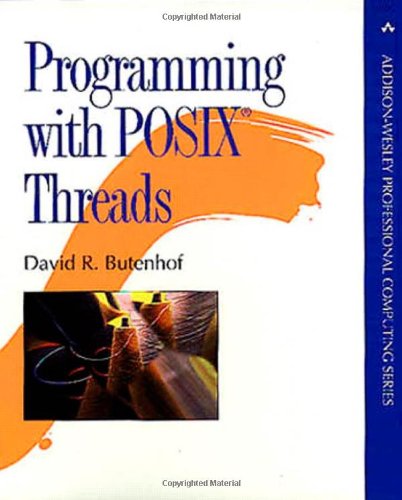Programming with POSIX threads pdf free
Par ingram william le dimanche, mai 29 2016, 01:33 - Lien permanent
Programming with POSIX threads. David R. Butenhof

Programming.with.POSIX.threads.pdf
ISBN: 0201633922,9780201633924 | 398 pages | 10 Mb

Programming with POSIX threads David R. Butenhof
Publisher: Addison-Wesley Professional
Some of the existing approaches to parallelization include using Windows and POSIX thread APIs, using MPI, and using the OpenMP shared memory threaded programming model. The threading library is the higher level of the two and is therefore the one to use in your typical programming tasks. David Butenhof's Programming with POSIX Threads was published 10 years ago, in 1997. In shared memory multiprocessor architectures, such as SMPs, threads can be used to implement parallelism. A thread is smaller, faster, and more maneuverable than a traditional process. This book is about "threads" and how to use them. Http://www.ibm.com/developerworks/linux/library/l-memory-leaks/?cmp=dw&cpb=dwlin&ct=dwnew&cr=dwnen&ccy=zz&csr=090210. For Linux C programmers, probably the most frequently used lock is mutex from NPTL, the Native POSIX Thread Library. Thread" is just a name for a basic software "thing" that can do work on a computer. Explains the difference between joinable and detached threads. Python's thread and threading libraries use POSIX threads. At the time, it was the definitive work on the POSIX thread API, and multi-threaded programming in general. OpenMP was developed because native operating system threads (often referred to as POSIX threads or Pthreads) programing can be cumbersome.
H.G. Wells - Complete Works download
IEC 60079-2 Electrical apparatus for explosive gas atmospheres - Pressurized enclosures 'p'P book